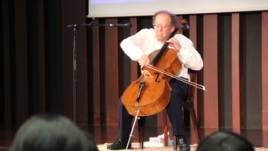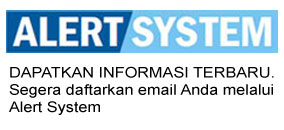28 August 2012
“The fact is the suffering of many children who are under severe illness are seemingly losing their souls,” the 65-year-old doctor told VOA Khmer in a recent interview, following an evening performance. “That’s why I am trying to make it into the sound of the cello, to call back the souls of those children. This cello sound is a message sent to the listener to feel the suffering and compassion so that they will contribute to the funding.”
Richner, who is Swiss, plays week in and week out, drawing crowds from among Siem Reap’s tourists, who help fund the hospitals. But he is now getting older, and he says he worries he won’t be able to do it forever.
Richner was a professional cellist before he became a doctor in 1973. Every Saturday night, from 7 pm to 9 pm, he performs to crowds of around 200 people in Siem Reap. He also gives a talk on the illnesses of Cambodian children to a crowd that comes from all over the world, who have come to see the famed temples of Angkor Wat.
By the end of a recent performance, audience member Ardri Sijg, who is also Swiss, said he was moved to return home with news of the hospital. “I became very interested when I learned about this situation in the hospital and his performance,” he said.
The hospital network treats thousands of children a year, and since 1992 has seen to some 1.2 million hospitalized patients. Staff has consulted with more than 11 million patients over the years, hospital officials estimate. The costs for such operations over the years have come to some $410 million, most of it from charity and Richner’s efforts.
Every morning, the cellist wakes at 6 am. He first goes to the hospital to see reports on patients’ conditions from the night before. He meets with staff, checks up on critical or emergency care children, then breaks from around 11:30 am to 1:30 pm. Then he continues his work at the hospital until around 6 pm. After dinner, he contacts sponsors in Switzerland to send them his reports.
This takes much of his time. Richner estimates he needs about $36 million per year to keep the hospitals going. About $31 million of it comes from his vast network of funders and supporters. The Swiss government provides $3 million per year; the Cambodian government gives him $2 million per year.
 Richner was a professional cellist before he became a doctor in 1973.
Richner was a professional cellist before he became a doctor in 1973.Despite these efforts, Richner says there is more to do. He hopes to raise some $600 million to support the Kantha Bopha network over the next 20 years, as he grows old. He will not always be able to play the cello, he said.
“I am starting this project by insisting the Swiss and Cambodian governments, international organizations and banks participate in this funding,” Richner said. “Since 80 percent of the children’s families are poor and not able to afford the expenses of treatment, until I’ve obtained this funding, I cannot say that my work is successful.”
An estimated 12,000 children from poor families visit the hospital each year. Most have serious conditions, such as dengue fever, encephalitis or tuberculosis.
Yay Chantana, a doctor at the hospital, said Richner has sacrificed much in order to help the children.
“He is very smart and he manages his work very tightly,” Yay Chantana said. “Each morning, those who work on the night shift need to report everything to him from both Phnom Penh and Siem Reap about how many severe and and mild cases in a day, how many newborn children in a night. He controls all the work himself. He asks us how many new cases come in every day, and he asks us what we have done, what we need, and to show him results.”
Richner has worked seven days a week, 10 hours a day, for the last 20 years, Yay Chantana said. He doesn’t take sick leave. He spends half the time managing the hospitals in Siem Reap. The other half of his time is spent in Phnom Penh. Taken together, the five hospitals have around 2,400 staff, all under his management.
“He’s always working, solving problems,” Yay Chantana said. “He never complains. It’s been 20 years and he’s never had a full day’s rest. Only with such an attitude can he manage the staff, since we look up to his greatness as a model.”
One day recently, Chea Arn, a mother from Kampong Cham province, was sitting inside one of the hospitals with a sick child. She said Richner took great care when examining children.
“He tries very hard to help our children,” she said. “Without him, I wouldn’t know where to take my child.”









[…] PHNOM PENH – For the last 20 years, Beat Richner has run a network of children’s hospitals. The Kantha Bopha hospital network has grown to five branches in Phnom Penh and Siem Reap, kept afloat through charity concerts where he plays his cello and through tens of thousands of supporters from abroad. Selengkapnya […]